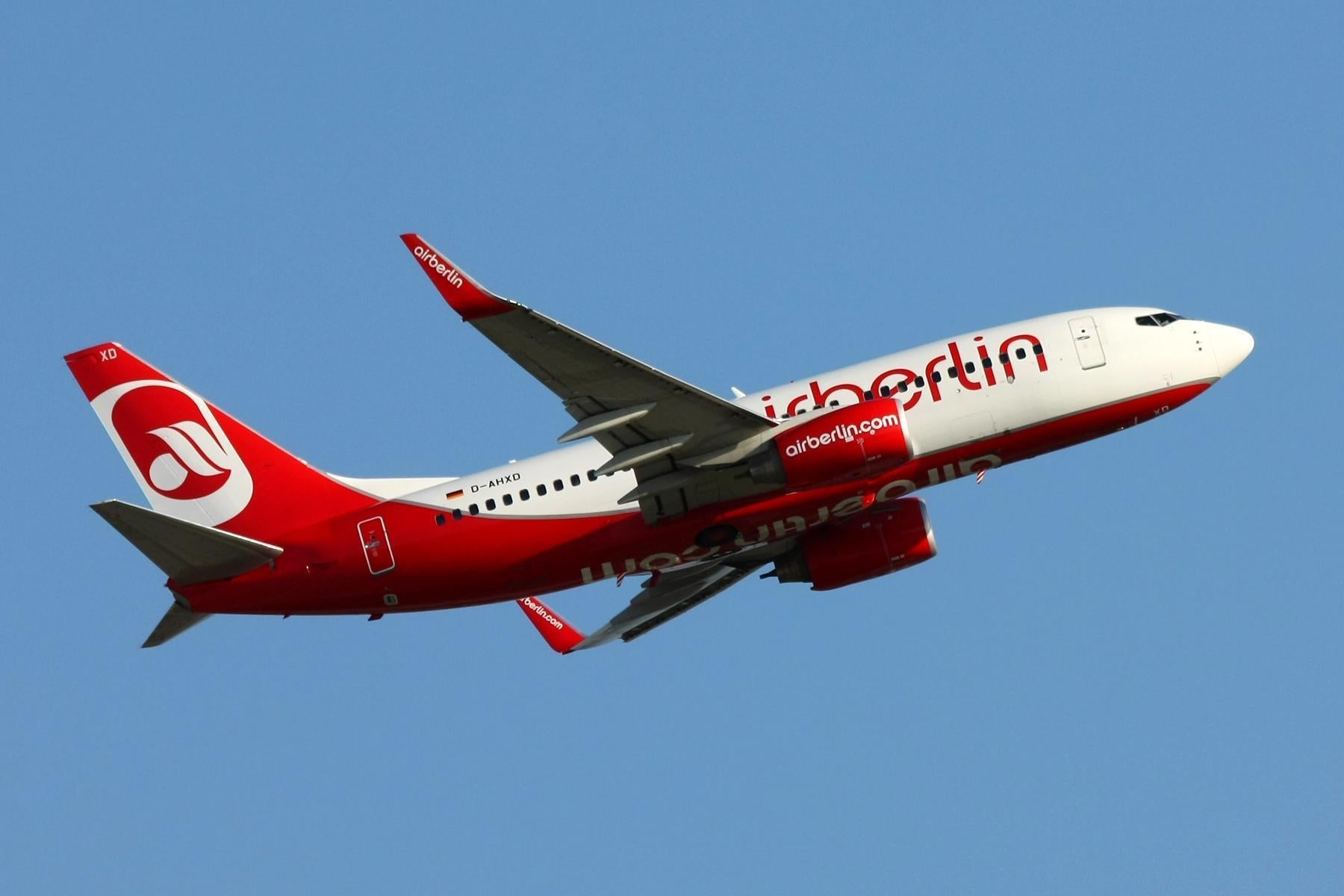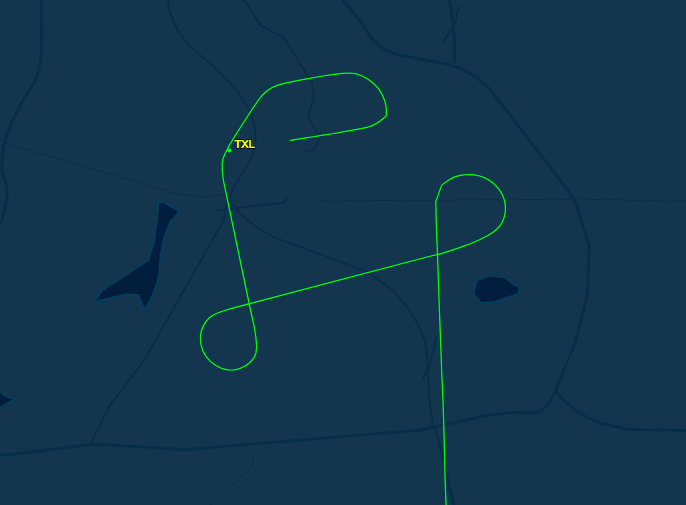Shutters down for Air Berlin as easyJet pounces on its assets
Emotional final flight for bankrupt German airline which lost £20 for every passenger it flew last year

Your support helps us to tell the story
From reproductive rights to climate change to Big Tech, The Independent is on the ground when the story is developing. Whether it's investigating the financials of Elon Musk's pro-Trump PAC or producing our latest documentary, 'The A Word', which shines a light on the American women fighting for reproductive rights, we know how important it is to parse out the facts from the messaging.
At such a critical moment in US history, we need reporters on the ground. Your donation allows us to keep sending journalists to speak to both sides of the story.
The Independent is trusted by Americans across the entire political spectrum. And unlike many other quality news outlets, we choose not to lock Americans out of our reporting and analysis with paywalls. We believe quality journalism should be available to everyone, paid for by those who can afford it.
Your support makes all the difference.As the emotional final flight of the bankrupt airline, Air Berlin, was taking place on Friday, easyJet was sealing a deal that will transform its status in Germany.
The UK’s biggest budget airline is paying €40m (£35m) for slots at the German capital’s leading airport, Tegel, as well as operating leases on up to 25 Airbus A320 jets. In addition, easyJet is seeking to recruit around 1,000 of Air Berlin’s pilots and cabin crew.
The airline will continue with its existing operations at Schönefeld, the old East Berlin airport favoured by low-cost operators.
The audacious move makes easyJet the biggest airline in Berlin and will dismay Lufthansa, as well as Europe’s largest budget carrier, Ryanair.
Pointedly, given the employment practices at Ryanair, easyJet has emphasised the recruits from Air Berlin “will be employed on local, German contracts under collective labour agreements negotiated with ver.di [the German pilots’ union]”.
The deal is expected to be completed in December.
Air Berlin’s final flight was a scheduled departure from Munich to Berlin Tegel. But instead of the normal flight number, AB6210, it was assigned the title BER4EVR.
The flight touched down 75 minutes late – having flown much further than normal in order to inscribe a heart shape into its flight path. Air Berlin’s signature has been to give passengers heart-shaped chocolates on departure, and air-traffic controllers cooperated in the stunt.

Air Berlin was almost 40 years old when it closed but for most of its life had struggled to find a coherent business model and make money.
The airline was launched by American backers as Air Berlin USA in 1979. At the time only American, British and French carriers were allowed to fly to and from then-West Berlin as part of the post-war deal with the Soviet Union. It ferried holidaymakers from the isolated city to the Mediterranean.
After German unification in 1990, Air Berlin expanded rapidly. It took advantage of “open-skies” liberalisation to launch domestic flights in Britain, flying from Stansted to Manchester and Belfast. Like many of Air Berlin’s ventures, it was not a success.
A Spanish domestic network continued, however, and Air Berlin joined the top 10 of European airlines by passengers carried. It joined the Oneworld alliance, and entered code-share agreements with British Airways for dozens of flights.
In 2011, the Abu Dhabi-based airline, Etihad, took a 29 per cent slice of Air Berlin and, for the next six years, pumped cash into the German carrier – which was establishing a wide-ranging long-haul network. But in 2016, Air Berlin made a loss equating to £20 for every passenger flown. After the results were announced in April this year, Etihad decided to pull the plug. Air Berlin was declared bankrupt on 15 August, but with the help of a loan from the German government it was allowed to continue flying until the end of the summer season – in sharp contrast to Monarch, which was grounded overnight earlier this month.
Like Monarch, Air Berlin had flown for decades without a fatal accident.
The biggest winner from the airline’s collapse is Lufthansa. The German national airline plans to take most of Air Berlin’s aircraft and many of its staff, as well as the solvent Air Berlin airline subsidiaries, Niki and LG Walter. However, the European Commission is investigating the extent to which the proposed deal will reduce competition, and may demand “remedy” actions such as ceding slots to other carriers.
Join our commenting forum
Join thought-provoking conversations, follow other Independent readers and see their replies
Comments